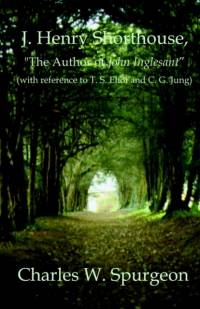Über J. Henry Shorthouse, The Author of John Inglesant (with reference to T. S. Eliot and C. G. Jung)
When J. Henry Shorthouse (1834-1903) published John Inglesant in 1881, he contributed a unique synthesis of Anglo-Catholic sensibilities to the enduring legacy of the Oxford Movement. Although his "philosophical romance" has been acclaimed "the greatest Anglo-Catholic novel in English literature" and "the one English novel that speaks immediately to human intuition without regard to the reader's own faith or philosophy", his most enduring contributions are the "religion of John Inglesant", an Anglo-Catholic synthesis of obedience and freedom, faith and reason, and the sacramental vision of "the myth of Little Gidding".
Afflicted with a lifelong stammer, "the author of John Inglesant" proved himself a master of cadenced rhythms and "enspiritualised" prose in quest of "the great musical novel". Delineating parallels between sixteenth-century and Victorian England, Shorthouse integrated Quietism with Platonism into a religious aesthetic, a sacramental vision of "the Divine Principle of the Platonic Christ". Studied chronologically, Shorthouse's transition from Quaker to "Broad Church Sacramentalist" provides informing comparison with T. S. Eliot's conversion from Unitarian to Anglo-Catholic, as his myth of Little Gidding informs the historical imagination of Eliot's Christian poetry and dramas. The religious and developmental nature of the work of both artists affords analogies with C. G. Jung's psychology of Individuation.
Mehr anzeigen

